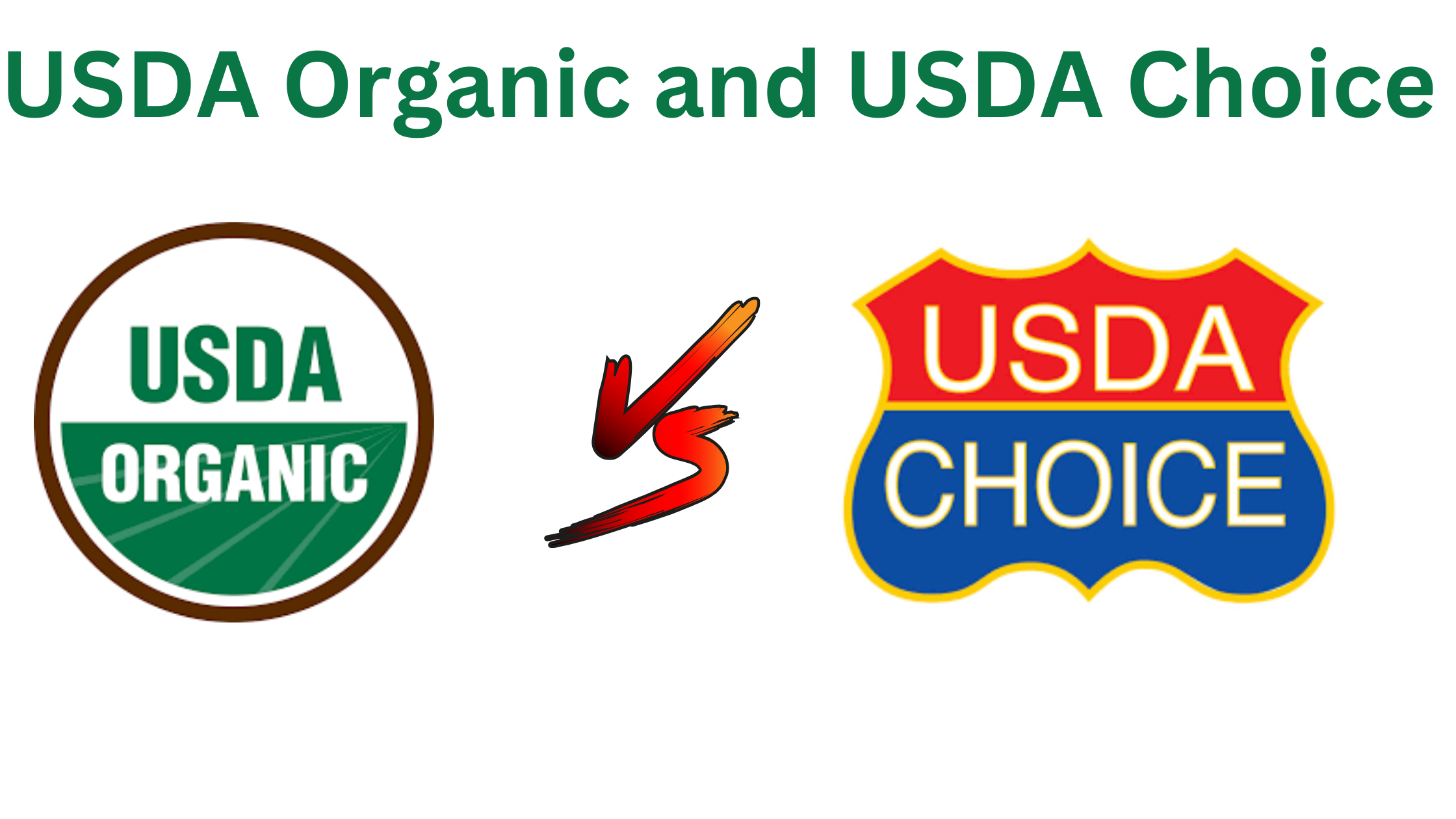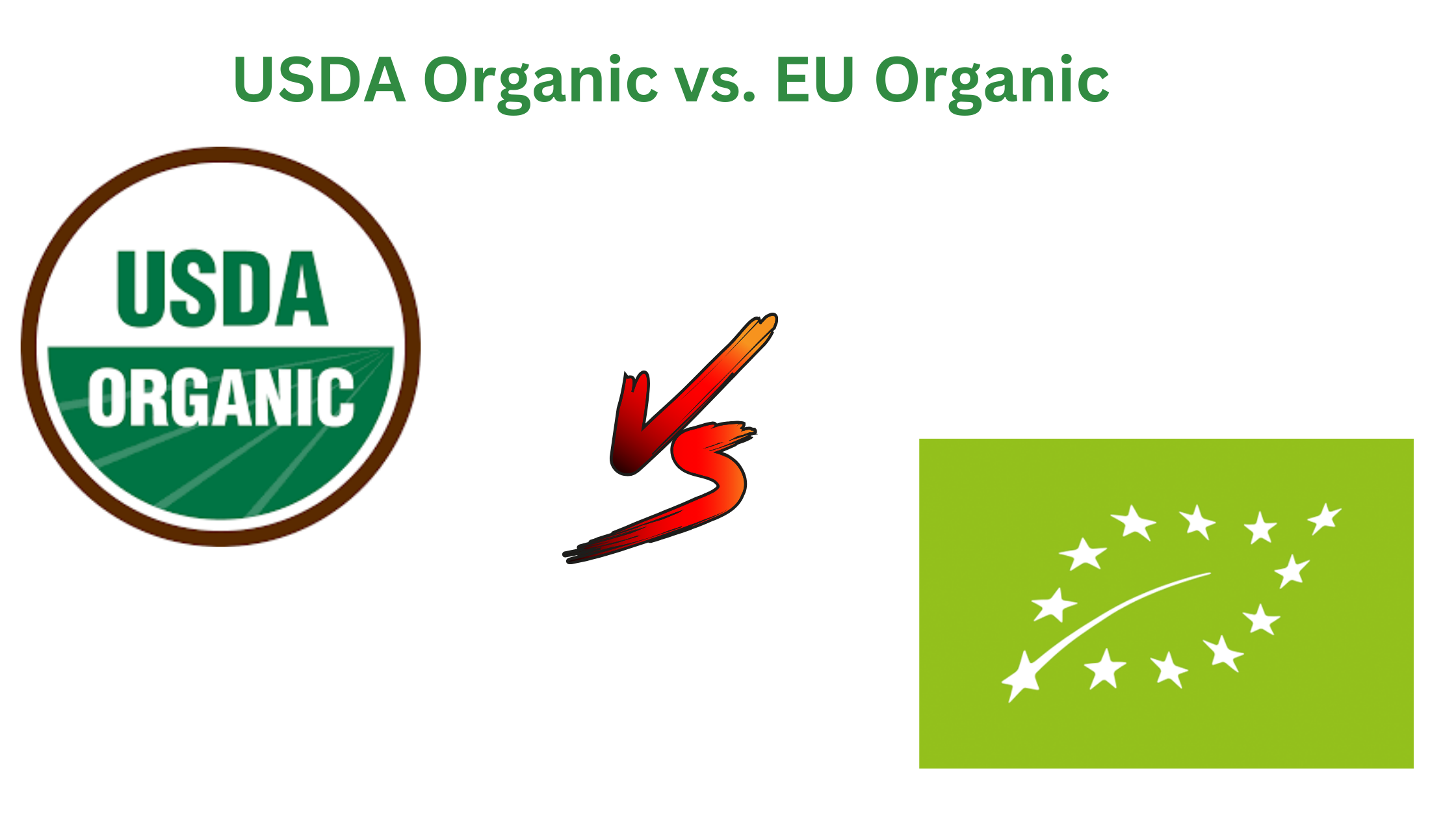Did you know sales of organic beef have jumped by 25% since 2019? More people today care about eating healthy and protecting our planet. But what exactly makes beef “USDA Organic“? In this guide, you’ll learn the exact rules farmers must follow, why these rules matter, and how you can pick real organic beef at […]
Category: Certification
Oregon Tilth vs. USDA Organic: What’s the Difference?
Organic certification helps people know if a product is truly organic. It means the food was grown without synthetic pesticides, GMOs, or artificial chemicals. Also, organic farms use natural methods to keep the soil healthy and protect the environment. In the U.S., two well-known organic labels are USDA Organic and Oregon Tilth Certified Organic. Both […]
Ecocert vs. USDA Organic: What’s the Difference & Which One is Better?
When you buy organic food or skincare, how do you know it’s truly organic? That’s where organic certifications help. They prove that a product meets strict natural, chemical-free, and eco-friendly standards. Two of the most recognized organic labels are USDA Organic and Ecocert. Both make sure products are safe, natural, and sustainable. But they follow […]
How to Get USDA Organic Certification: Step-by-Step Guide
If you’ve ever seen the green USDA Organic seal on food packages, you might have wondered what it really means. USDA Organic Certification is an official stamp of approval from the United States Department of Agriculture (USDA) that tells consumers a product was made using organic farming practices—without synthetic pesticides, genetically modified organisms (GMOs), or […]
USDA Organic and USDA Choice : What’s the Difference and Which One you should choose?
When you see “USDA Organic” and “USDA Choice” on food labels, it’s easy to think they mean the same thing—but they don’t! They’re actually about two totally different things. USDA Organic tells you how the food was grown or raised. It means no artificial chemicals, no synthetic pesticides, and no genetically modified ingredients. Farmers have […]
USDA Organic vs. EU Organic: What’s the Difference and Which One is Better?
When we talk about USDA Organic and EU Organic, we’re diving into two important ways to label food that is grown without harmful chemicals. In the U.S., the USDA sets rules that farmers must follow to get the “organic” label, which means they can’t use synthetic fertilizers or pesticides. Then, in Europe, the EU has […]
Regenerative Organic vs. USDA Organic: What’s the Difference and Why It Matters
Regenerative organic farming and USDA organic farming are two ways to grow food that help the environment. USDA organic focuses on not using harmful chemicals and follows strict rules. Then, regenerative organic goes further by improving the soil and ecosystem. It uses special methods to make the land healthier over time. Both aim to produce […]
Non GMO vs USDA Organic – know the difference
Walking through the grocery store can feel like a maze of labels—Non-GMO, USDA Organic, natural, fair trade—the list goes on! Among these, two of the most common and confusing labels are Non-GMO Verified and USDA Organic. Let’s break them down so you can make smarter choices about your food. What Does Non-GMO Mean? Non-GMO means that the product […]
The Ultimate Guide to Non-GMO Certification: What You Need to Know
The global non-GMO food market is projected to reach $2.76 billion by 2025, with a compound annual growth rate (CAGR) of 16.5%. This surge reflects an increasing awareness among consumers about the potential health risks and environmental impacts associated with genetically modified organisms (GMOs). What is Non-GMO certification ? Non-GMO certification means a food product is made without […]
CCOF vs. USDA Organic: What’s the Difference?
Imagine you’re at the grocery store, looking at apples. One sticker says “USDA Organic,” and another says “CCOF Organic.” What do they mean? Are they the same? Let’s dive into this mystery and find out. What Is USDA Organic? USDA stands for the United States Department of Agriculture. This is the big boss of organic […]


